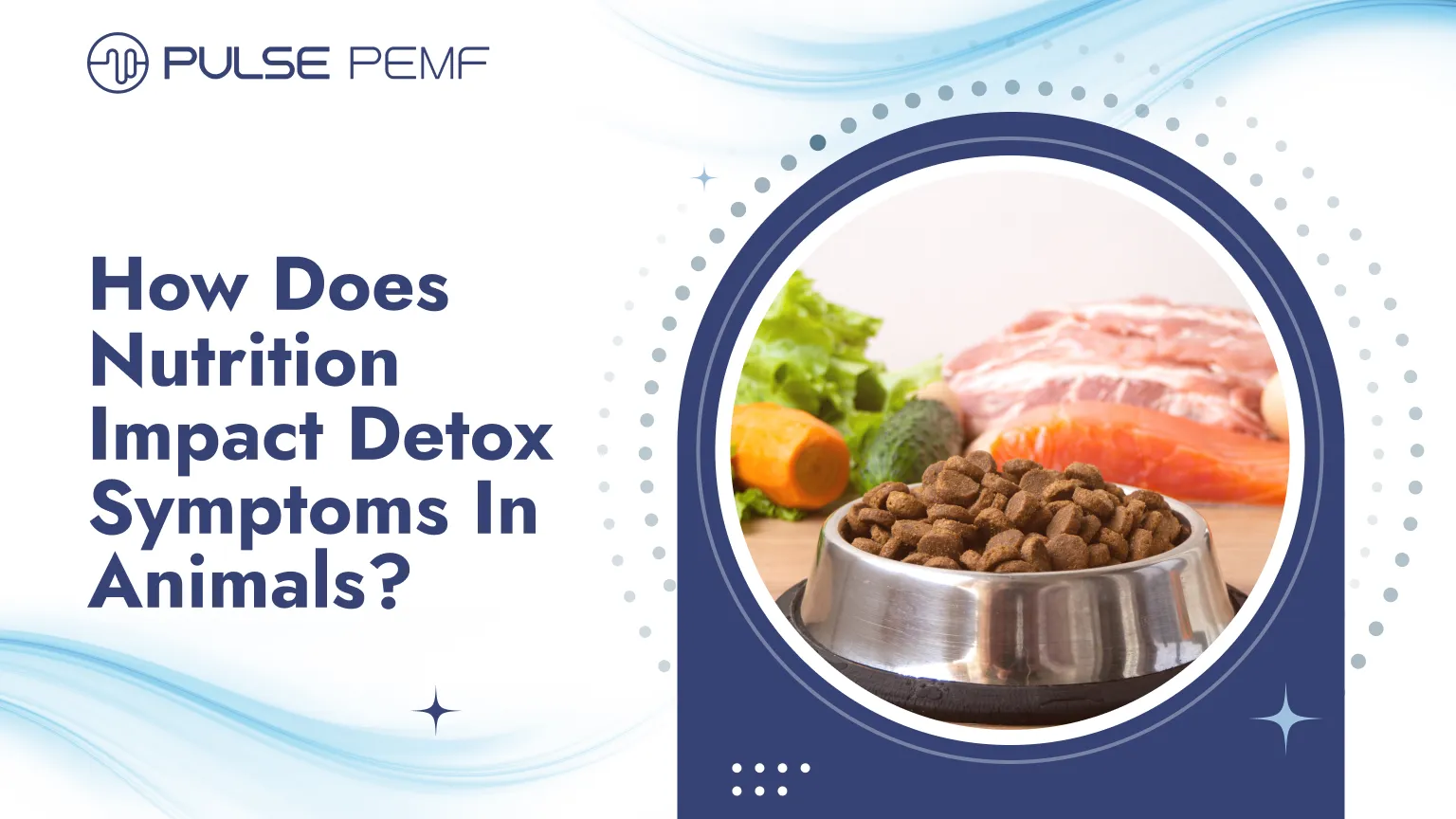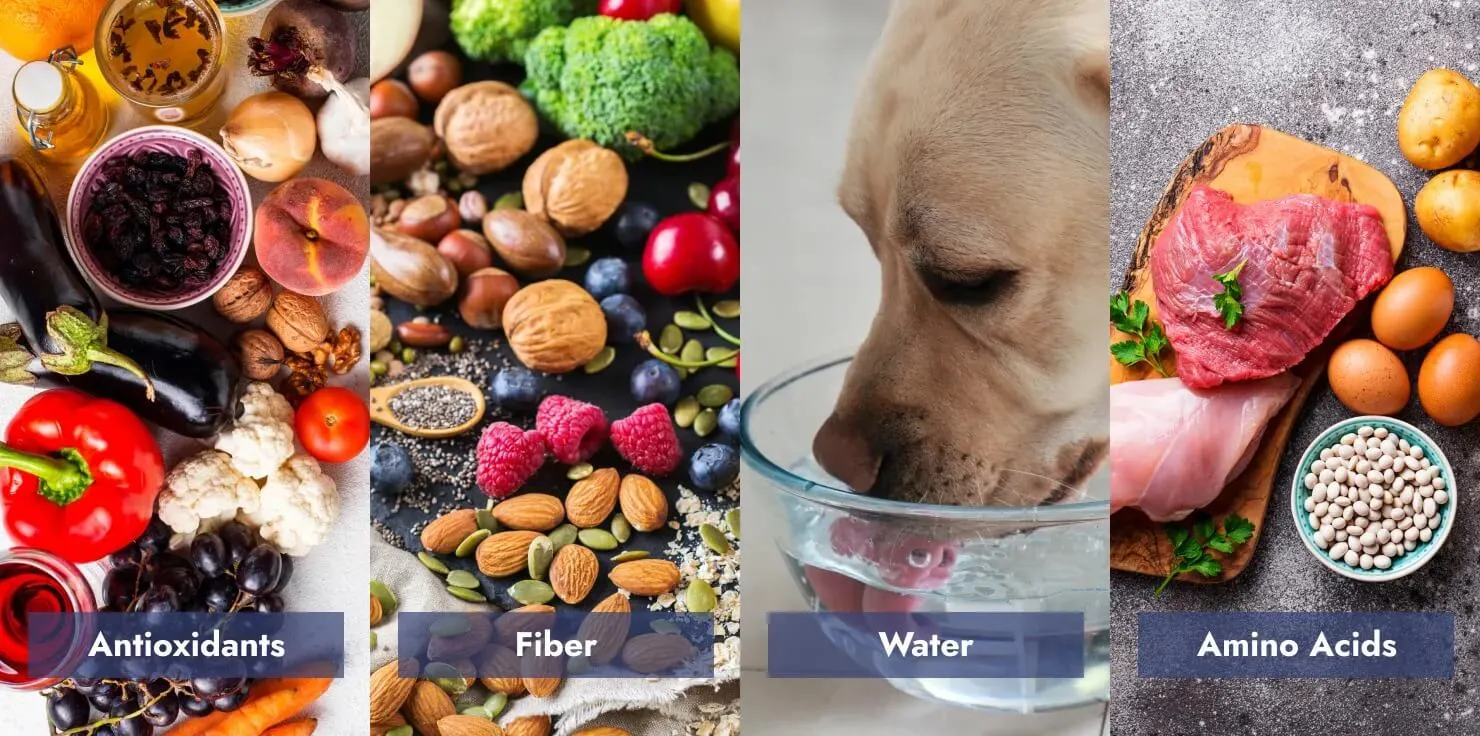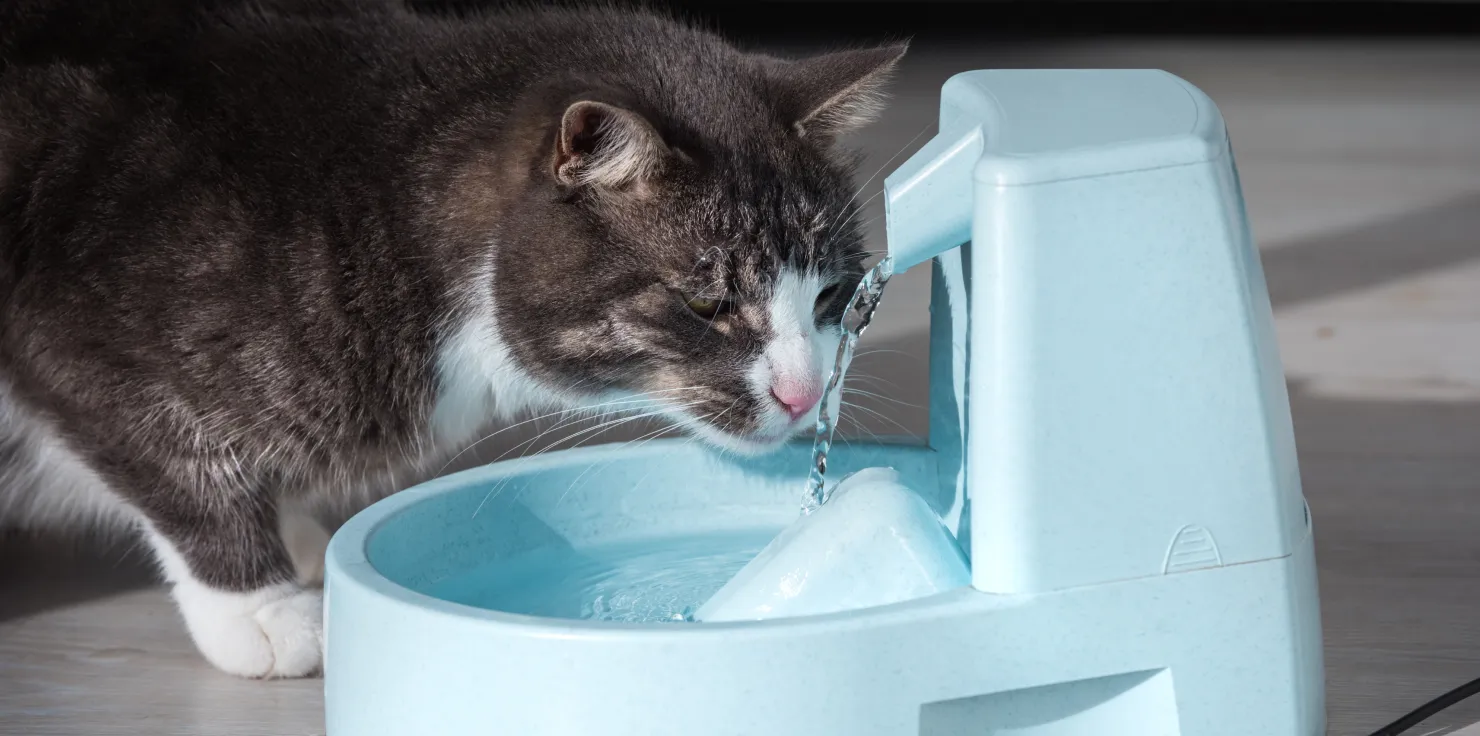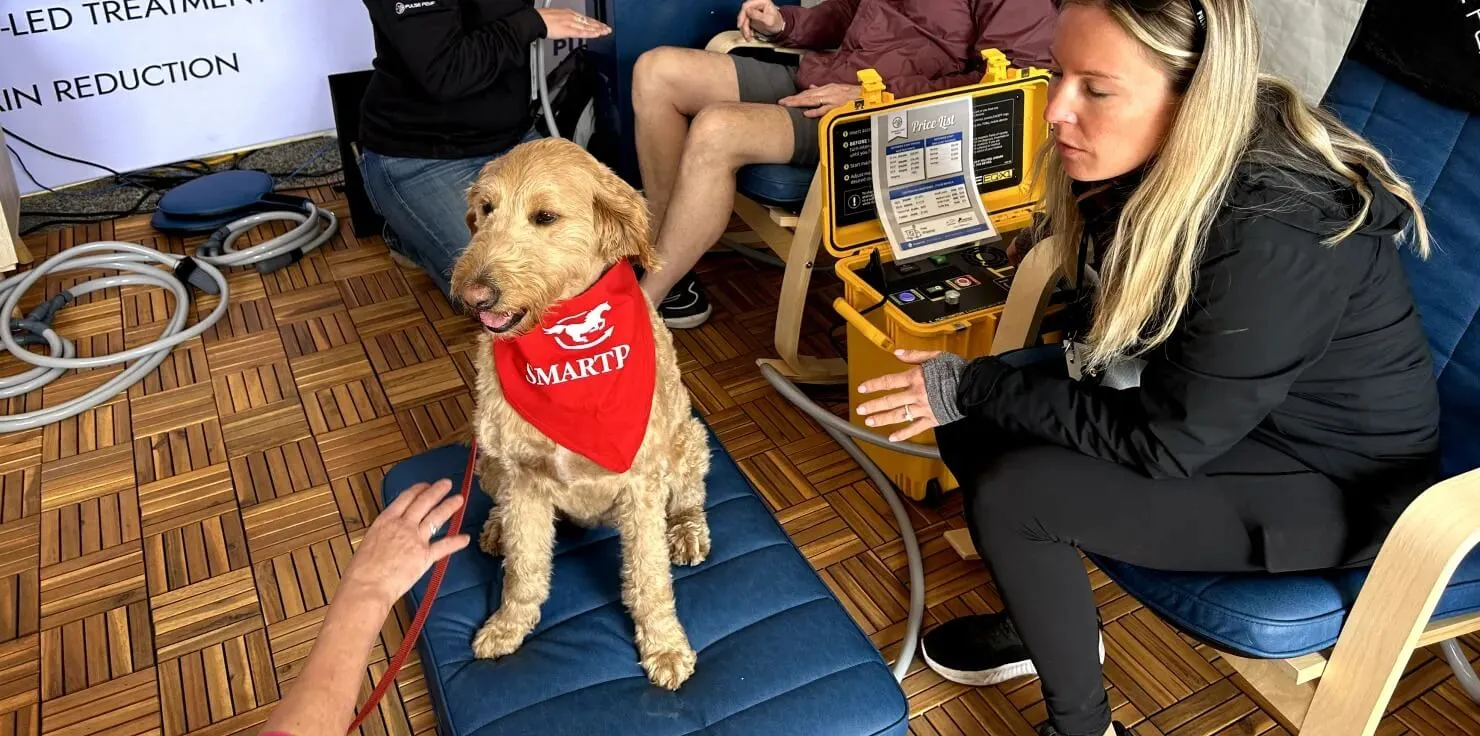Have you ever noticed your furry friend acting a little off after a change in diet?
Itching, lethargy, or even digestive issues could be signs of detox symptoms. Just like humans, animals go through a detoxification process when their bodies eliminate built-up toxins.
While this is a positive step towards better health, it can sometimes cause temporary discomfort.
This blog will explore the role of nutrition in managing detox symptoms in animals, and how PEMF therapy may provide additional support. We’ll cover what detox symptoms look like in pets, how to adjust their diet to ease discomfort, and the potential benefits of PEMF for detoxification.
Understanding Detox Symptoms in Animals
Detoxification is the body’s natural way of getting rid of unwanted toxins and waste products. Just like how we clean our houses, our bodies need to eliminate these built-up toxins to stay healthy. The liver, kidneys, and skin are the main players in this process, acting as filters and eliminators.
Toxins can come from various sources, both inside and outside the body. Environmental pollutants, processed foods, medications, and even normal metabolic processes can leave behind toxins that need to be removed.
Common Detox Symptoms in Animals
When your pet’s body goes into detox mode, you might notice some changes in their behavior and health. Here are some common detox symptoms in animals:
- Increased urination: This is a good sign! The kidneys are working hard to flush out toxins through urine.
- Diarrhea or loose stools: As the body eliminates toxins, digestion can be temporarily disrupted.
- Lethargy: Detoxification can take a lot of energy, so your pet might seem more tired than usual.
- Skin irritations or rashes: The skin is another elimination pathway, so you might see rashes, itching, or other skin issues.
- Bad breath or body odor: These can be signs that toxins are being released through these pathways.
Why Detox Symptoms Occur
Detoxification can sometimes stress the organs involved, especially during a major dietary change. Imagine your pet’s liver and kidneys working overtime to process a new diet! This temporary stress can lead to the symptoms we mentioned earlier. That’s why supporting your pet’s body with proper nutrition and hydration is crucial during this process.
The Role of Nutrition in Detoxification
Nutrients for Detoxification
Just like the right tools make cleaning easier, the right nutrients can improve your pet’s detoxification process. Here are some key players:
- Antioxidants: Think of antioxidants as tiny warriors that fight free radicals, harmful molecules created during detoxification. Vitamins C and E, along with the mineral selenium, are all-star antioxidants.
- Fiber: Imagine fiber as a sponge in your pet’s digestive tract. It helps bind toxins and safely usher them out of the body.
- Water: Water is essential for flushing out toxins through the kidneys. Ensure your pet has access to fresh, clean water throughout the day.
- Amino Acids: These are the building blocks of protein. Some specific ones, like methionine, play a crucial role in liver function, supporting detoxification.
Gut Health and Detoxification
A healthy gut microbiome, the community of good bacteria in your pet’s digestive system, is vital for detoxification. These friendly bacteria help break down toxins and support overall gut health. Probiotics are live bacteria supplements that can boost the good bacteria in your pet’s gut, while prebiotics are like food for these good bacteria, found in foods like chicory root and bananas.
Foods to Include in Your Pet’s Detox Diet
Now that you know the key nutrients, let’s explore some detox-friendly foods to incorporate into your pet’s diet:
- Leafy Greens: These are packed with chlorophyll, a natural detoxifier that helps support the liver. Think spinach, kale, and romaine lettuce.
- Berries: Bursting with antioxidants, berries like blueberries and strawberries help fight free radicals and support overall health.
- Cruciferous Vegetables: Broccoli, cauliflower, and kale are powerhouses for detoxification. They contain compounds that stimulate liver enzymes involved in toxin processing.
- Lean Proteins: Lean meats, fish, and eggs provide essential amino acids needed for the body’s detoxification pathways.
- Whole Grains: Whole grains like brown rice and quinoa are great sources of fiber, helping to eliminate toxins through the digestive system.
Remember, it’s always important to consult with your veterinarian to determine which foods your pet can safely eat.
Nutritional Considerations During Detox
While PEMF may provide additional support during detoxification, optimizing your pet’s diet is key. Here are some adjustments to consider:
Increased Water Intake
Water is crucial for detoxification because it helps the kidneys flush out toxins. During PEMF sessions, your pet might need even more water to support this process. Make sure they have constant access to fresh, clean water throughout the day.
Fiber-Rich Foods
Fiber acts like a sponge in your pet’s digestive tract, binding toxins and ushering them out of the body. Consider adding pumpkin or sweet potatoes to your pet’s diet. These are excellent sources of fiber that can aid in toxin elimination.
Avoid Processed Foods
Processed foods are often loaded with unhealthy fats, sugars, and artificial ingredients. These can burden the liver and hinder detoxification efforts. Stick to fresh, whole foods whenever possible.
Potential Impact of Nutrition on Detox Symptoms
Nutrition plays a significant role in how your pet experiences detox symptoms. Here’s how your pet’s diet can influence their comfort level:
Nutrient Deficiencies and Detox Reactions
If your pet is deficient in certain nutrients, it can worsen detox symptoms. For example, a lack of antioxidants can make it harder for them to fight free radicals produced during detoxification. This could lead to increased inflammation and discomfort. Ensuring your pet receives a balanced diet rich in key nutrients like vitamins, minerals, and amino acids is crucial for smooth detoxification.
Food Sensitivities and Detox
Sometimes, food sensitivities can trigger or exacerbate detox reactions. If your pet has a sensitivity to certain ingredients, their body might react when those ingredients are released during detoxification. This could manifest as digestive issues, skin problems, or even behavioral changes. If you suspect your pet has food sensitivities, talk to your veterinarian about an elimination diet to identify potential triggers.
Dietary Support for Managing Detox Symptoms
By making some dietary adjustments, you can minimize your pet’s discomfort during detoxification:
- Reduce Inflammatory Foods: Certain foods, like processed grains and unhealthy fats, can contribute to inflammation. Limiting these foods can help reduce overall discomfort during detox.
- Easily Digestible Meals: During detoxification, your pet’s digestive system might be working harder than usual. Opt for smaller, more frequent meals of easily digestible foods like cooked chicken and brown rice. This can ease digestion and minimize discomfort.
- Probiotics: As mentioned earlier, a healthy gut microbiome is essential for detoxification. Consider adding a probiotic supplement to your pet’s diet to support gut health and potentially lessen digestive issues during detox.
Remember, consulting your veterinarian before starting any new dietary regimen, especially during detoxification, is always recommended. They can help you create a personalized plan that addresses your pet’s specific needs and ensures a safe and comfortable detox experience.
How PEMF Therapy Supports Detox
PEMF therapy can be a valuable tool to support your pet’s natural detoxification process. It uses supplemental energy from electromagnetic fields to help your pet’s cells function better overall, potentially leading to enhanced detoxification.
Nutritional Support During PEMF Sessions
To maximize the benefits of PEMF during detoxification, consider these nutritional tips:
- Hydration is Key: As mentioned earlier, proper hydration is crucial for flushing out toxins. Ensure your pet has access to fresh water before, during, and after PEMF sessions.
- Light Meals Beforehand: A heavy meal can tax your pet’s digestive system. Opt for a light, easily digestible meal a few hours before a PEMF session.
- Post-Session Support: After a PEMF session, your pet’s body might be working hard to eliminate toxins. Offer a small amount of water or a probiotic supplement to support gut health and detoxification.
By combining proper nutrition with PEMF, you can provide your furry friend with a safe and effective way to support their natural detoxification process.
Monitoring and Adjusting Your Pet’s Diet
While navigating your pet’s detox journey, keeping a close eye on their diet and any changes in their health is crucial. Here’s what to watch for and how to adjust their food intake:
Signs of Nutritional Deficiency
Nutritional deficiencies can worsen detox symptoms. Here are some signs to watch out for:
- Dry, flaky skin or excessive shedding
- Brittle nails
- Decreased energy levels
- Weakened immune system (frequent infections)
- Poor appetite
If you notice any of these signs, consult your veterinarian. They can assess your pet’s overall health and determine if a nutritional deficiency is contributing to their detox discomfort.
Adjusting Diet Based on Detox Symptoms
The way your pet reacts to detoxification can sometimes guide dietary adjustments:
- Diarrhea or loose stools: Offer smaller, more frequent meals of easily digestible foods like plain chicken and white rice. Consider adding probiotics to support gut health.
- Lethargy: Ensure your pet is getting enough calories from nutrient-rich sources like lean proteins and healthy fats.
- Skin irritations: Reduce inflammatory foods like processed grains and unhealthy fats. Consult your veterinarian about potential food allergies that might be triggering skin issues.
Working with a Veterinarian or Animal Nutritionist
For optimal support during your pet’s detox, consider consulting a veterinarian or animal nutritionist. They can:
- Tailor a Diet to Specific Needs: A veterinarian or animal nutritionist can create a personalized diet plan that addresses your pet’s age, breed, and any underlying health conditions.
- Guide You on Nutrient Requirements: They can ensure your pet is getting the right balance of vitamins, minerals, and other essential nutrients to support detoxification and overall health.
- Help Identify Food Sensitivities: If you suspect your pet has food sensitivities, a veterinarian can conduct an elimination diet to pinpoint potential triggers and adjust their diet accordingly.
- Adjust Diet to Support Detoxification: They can recommend specific dietary modifications to optimize your pet’s detoxification process and minimize discomfort.
Remember, your veterinarian is your best resource for ensuring your pet’s safety and well-being throughout the detoxification process.
Conclusion
In conclusion, detoxification is a natural process that can sometimes cause temporary discomfort in your pet. By providing proper nutrition and hydration, along with PEMF, you can significantly support their body’s natural ability to eliminate toxins and promote overall health.
If you’re interested in learning more about how PEMF could benefit your furry friend during detoxification, contact us today! Our team of experts is here to answer your questions and guide your pet on the path to optimal wellness.















